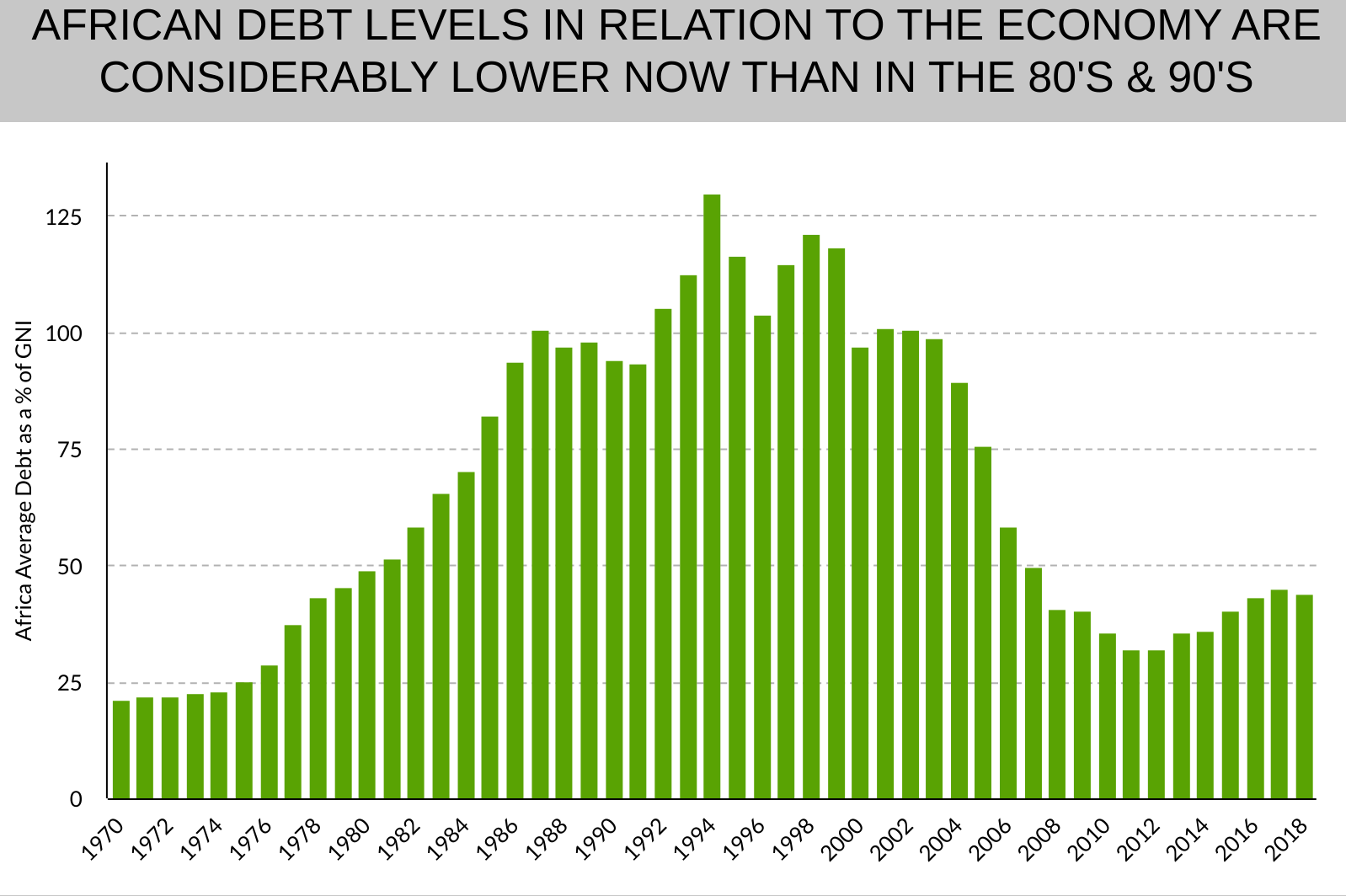Updated Weekly
There is one word this week that we have been hearing a great deal. Debt. Concerns are being expressed by many international development organisations about the potential for a debt crisis, especially given the World Bank’s gloomy update of its World Economic Prospects.
This week, we decided to investigate the debt question a little further, on behalf of our clients, analysts and investors, and work out what is really going on. What did we find?
First, our analysis reveals that we should be concerned right now about whether African countries have enough room in their budgets to pay for all the higher costs they are facing due to COVID19 – both in terms of the direct health costs and also the economic costs people and businesses are having to face because of the global slowdown in flows of trade, finance and people as well as social distancing.
Our analysis shows that the total debt repayments owed by African countries in 2018 were 1.4 times larger than the budgets that African countries have now put aside to address the effects of COVID19 (which, incidentally, have risen by US$9bn since our last estimate two weeks ago, to US$53bn in total now).
That leaves very little room for manoeuvre unless those payments are somehow cancelled or postponed. The good news is that the G-20 – the group of the 20 wealthiest countries in the world including China – have stepped in to say they will help 77 countries, including 40 in Africa, to postpone the debts they owe to the G20 up to the end of 2020, and possibly longer. That debt is estimated at $20bn in total, but it will still leave a remainder to pay of over $56bn… New grants and loans are being agreed by World Bank and IMF member states, the EU is contributing, and China has pledged $2bn total spend to Africa. That still leaves a gap of at least $25bn, just to fund the bare minimum of what African economies need to tackle COVID19. Where will this and more finance be found?
Second, despite this really challenging situation, our analysis also reveals that we are skeptical of claims of a debt crisis. Yes, debt levels of African countries are higher in absolute terms than ever, but their economies are doing better than ever too. That means we are now at about 1978 levels of debt. Those of our readers old enough to remember that point (sadly, only a few of our staff!), will know the oil crisis in the late 1970’s saw rising interest rates on debt and led to spiralling debt levels thereafter of many poor countries, through no fault of their own. A repeat of this situation can be avoided, but it will require a shift in the international debt system, something our CEO has recently written about.
Third, our analysis reveals that debt in the majority of African countries is very small compared to global debt and global GDP. Yes, there are certain countries that indicate challenges, such as debt levels larger than the current size of their economies (only 2 African countries Djibouti and Mozambique), or over 40% of their debt lent by the private sector (Mauritius, Nigeria and Zambia – NB: the private sector was the most intransigent in renegotiating/cancelling debt in the 1990’s and 2000’s for the poorest countries), or interest rates of over 15% on the debt owed (3 African countries Mauritius, Djibouti and Angola). However, this does not account for the majority. That means finding ways to support the majority of African countries to avoid a debt crisis while avoiding increased poverty as we saw in the 1980s and 1990s is possible.
As always, our analysis reveals hope as well as challenge. What conclusion to draw?
If African countries are to continue manage COVID19 without seeing escalating numbers of people in poverty, debt postponement, cancellation and new loans are only short-term answers. The more crucial task is to find a way to reignite growth – and in particular trade, finance and people flows to, from and between African countries, despite COVID19.
Digest our data below.

To find out how Development Reimagined can help you, your organisation or Government during the COVID-19 outbreak please email the team at clients@developmentreimagined.com .
Special thanks go to Rosie Wigmore, Rosie Flowers, Angela Benefo, and Jin Yu Chen for their work on the graphic and collecting/analysing the underlying data.
The spending data was collated from a range of sources including: the Milken Institute Africa Tracker; the IMF policy tracker; as well as government websites and media reports. Other COVID19 data was collated from our world in data and Africa CDC. Debt data was collected from the World Bank’s International Debt Statistics database.
If you spot any gaps, please send your feedback to us at drteam@developmentreimagined.com, we will aim to verify and rectify asap.
June 2020


